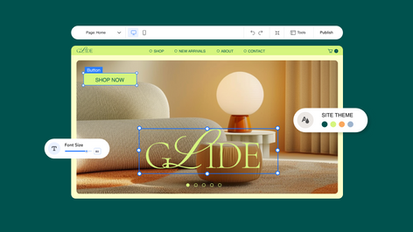What Is Small Business Website?
The Benefits of Small Business Website
Small Business Website
In the ever-evolving landscape of digital marketing, content marketing SEO has become a crucial strategy for businesses looking to increase their online visibility and attract more organic traffic to their websites. Content marketing SEO is the practice of creating high-quality, relevant content that is optimized for search engines in order to improve a website’s search ranking and drive more traffic to the site.

What Is Small Business Website?
Small Business Website
To ensure that your website meets accessibility standards, it is important to use a website accessibility checker. These tools help you identify areas on your website that may not be accessible to all users, allowing you to make the necessary changes to improve your site’s accessibility.
One popular website accessibility checker is the Web Content Accessibility Guidelines (WCAG) checker. WCAG is a set of guidelines for making web content more accessible to people with disabilities. These guidelines are broken down into four principles: perceivable, operable, understandable, and robust. The WCAG checker evaluates your website based on these principles and provides you with a list of issues that need to be addressed to improve accessibility.
Another website accessibility checker is Axe, which is a free open-source tool developed by Deque Systems. Axe scans your website for accessibility issues and provides detailed reports on areas that need improvement. The tool is easy to use and provides actionable recommendations for improving accessibility.
In addition to these tools, there are also browser extensions like Wave and AInspector that allow you to check the accessibility of your website in real-time as you browse. These extensions highlight accessibility issues on your site and provide recommendations for fixing them.
When using a website accessibility checker, it is important to keep in mind that no tool is perfect. While these tools can help identify common accessibility issues, it is also important to conduct manual testing to ensure that your website is truly accessible to all users. Manual testing involves using assistive technologies such as screen readers and keyboard navigation to navigate your site as a person with disabilities would.
It is also important to stay updated on the latest accessibility guidelines and best practices. The web accessibility landscape is constantly evolving, and it is important to stay informed about new developments in the field. By staying informed and regularly testing your website for accessibility, you can ensure that your site is accessible to all users.
In addition to ensuring compliance with accessibility laws and guidelines, improving website accessibility also benefits your business. By making your website more accessible, you can reach a wider audience and improve the user experience for all visitors. This can lead to increased engagement, higher conversion rates, and improved search engine rankings.
First and foremost, it’s important to understand the different types of web hosting available. The most common types of web hosting are shared hosting, VPS (Virtual Private Server) hosting, dedicated hosting, and cloud hosting.
Shared hosting is the most basic and cost-effective form of web hosting, where multiple websites are hosted on a single server. This means that resources such as storage, bandwidth, and processing power are shared among all websites on the server. While shared hosting is suitable for smaller websites with low to moderate traffic, it may not be the best option for high-traffic or resource-intensive websites.
VPS hosting is a step up from shared hosting, where a physical server is divided into virtual servers, each with its own dedicated resources. This provides more control and flexibility compared to shared hosting, making it a good option for websites that require more resources but do not need a dedicated server.
Dedicated hosting involves renting an entire server for your website, giving you complete control over resource allocation and security. This type of hosting is ideal for high-traffic websites or e-commerce sites that require robust security and performance.
Cloud hosting is a newer form of web hosting that utilizes multiple interconnected servers to provide scalable and reliable hosting services. With cloud hosting, resources are distributed across multiple servers, ensuring high uptime and performance. Cloud hosting is suitable for websites that experience fluctuating traffic or unpredictable resource demands.
When comparing web hosting providers, there are several factors to consider:
1. Uptime and reliability: Look for a web hosting provider with a high uptime guarantee, ideally 99.9% or higher. A reliable hosting provider will ensure that your website is always accessible to users.
2. Performance and speed: Choose a hosting provider that offers fast loading times and efficient server performance. Slow-loading websites can deter users and negatively impact your search engine rankings.
3. Security: Make sure the hosting provider offers robust security measures, such as SSL certificates, regular backups, and malware protection, to protect your website from cyber threats.
4. Scalability: Consider whether the hosting provider offers scalability options that allow you to easily upgrade your hosting plan as your website grows.
5. Customer support: Look for a hosting provider that offers responsive customer support, preferably 24/7, to address any technical issues or concerns that may arise.
Now, let’s compare some popular web hosting providers:
1. Bluehost: Bluehost is a well-known web hosting provider that offers a range of hosting options, including shared, VPS, and dedicated hosting. Bluehost is known for its reliable uptime, fast loading times, and excellent customer support. Pricing starts at $2.95 per month for shared hosting.
2. SiteGround: SiteGround is another popular web hosting provider that is known for its high performance, security features, and responsive customer support. SiteGround offers shared, VPS, and cloud hosting options, with pricing starting at $6.99 per month for shared hosting.
3. HostGator: HostGator is a budget-friendly web hosting provider that offers a variety of hosting plans, including shared, VPS, and dedicated hosting. HostGator is known for its easy-to-use interface, uptime guarantee, and affordable pricing. Shared hosting plans start at $2.75 per month.
4. A2 Hosting: A2 Hosting is a high-performance web hosting provider that offers a range of hosting options, including shared, VPS, and dedicated hosting. A2 Hosting is known for its fast loading times, excellent uptime, and developer-friendly features. Shared hosting plans start at $2.99 per month.
5. InMotion Hosting: InMotion Hosting is a reliable web hosting provider that offers a variety of hosting plans, including shared, VPS, and dedicated hosting. InMotion Hosting is known for its fast loading times, excellent customer support, and free website migration services. Shared hosting plans start at $6.99 per month.

Small Business Website Tips and Tricks
Small Business Website
In conclusion, building a beast-free online store can be a great way to attract eco-conscious consumers and differentiate yourself from the competition. With a range of website builders catering to this growing market, it has never been easier to create a cruelty-free online store. By carefully selecting your products, branding, and marketing efforts, you can build a successful online store that caters to ethical shoppers and helps promote a more sustainable future.


